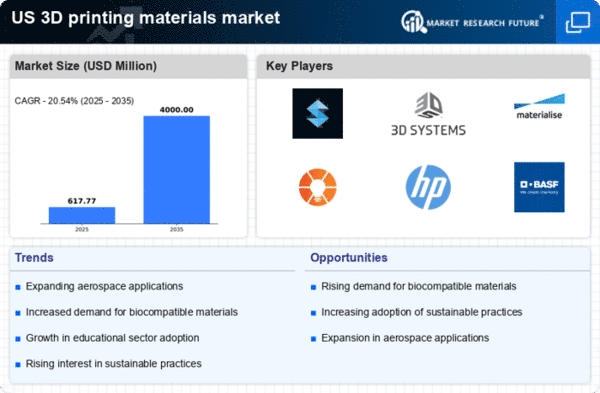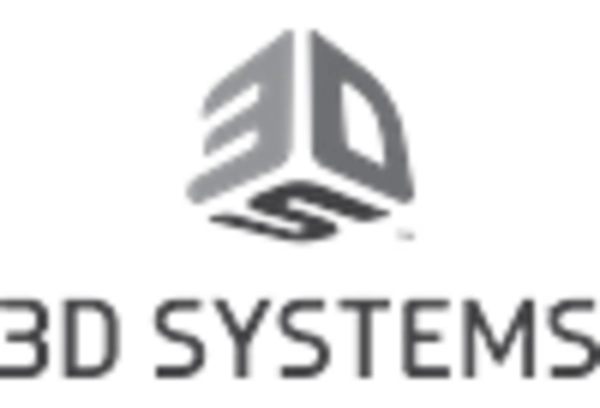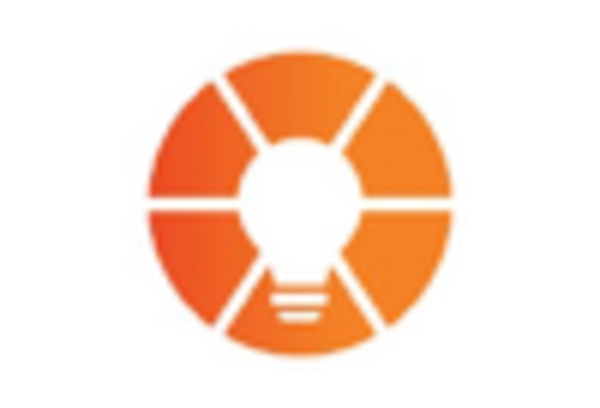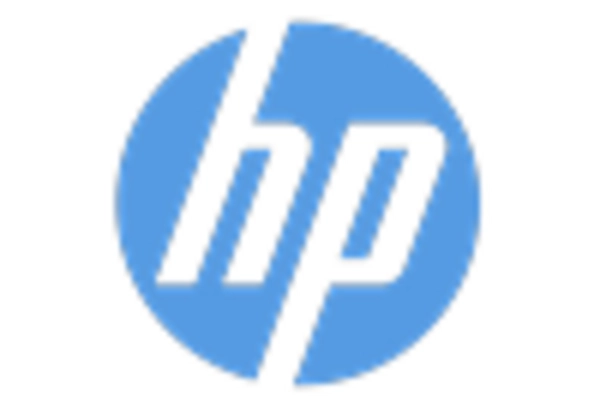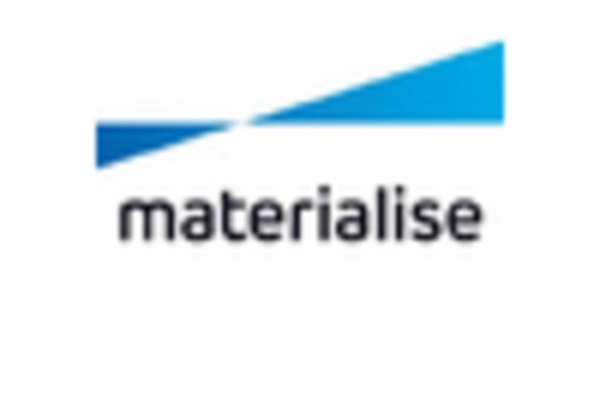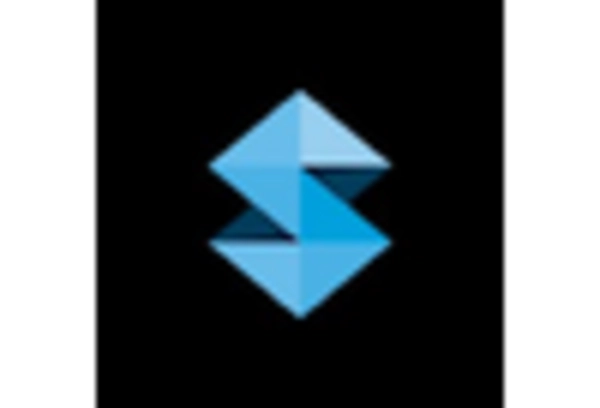US 3D Printing Material Market Summary
As per Market Research Future analysis, the 3D printing materials market size was estimated at 512.5 USD Million in 2024. The 3D Printing-material market is projected to grow from 617.77 USD Million in 2025 to 4000.0 USD Million by 2035, exhibiting a compound annual growth rate (CAGR) of 20.5% during the forecast period 2025 - 2035
Key Market Trends & Highlights
The US 3D printing materials market is experiencing robust growth driven by innovation and demand across various sectors.
- Sustainability initiatives are increasingly shaping the development of 3D printing materials, reflecting a broader environmental consciousness.
- Customization and personalization are becoming essential trends, particularly in the healthcare and consumer goods segments.
- The aerospace sector is witnessing rapid adoption of advanced 3D printing materials, making it one of the largest segments in the market.
- Technological advancements in 3D printing and increased demand from the healthcare sector are key drivers propelling market growth.
Market Size & Forecast
| 2024 Market Size | 512.5 (USD Million) |
| 2035 Market Size | 4000.0 (USD Million) |
| CAGR (2025 - 2035) | 20.54% |
Major Players
Stratasys (US), 3D Systems (US), Materialise (BE), EOS (DE), HP (US), BASF (DE), SABIC (SA), Arkema (FR), Formlabs (US)


